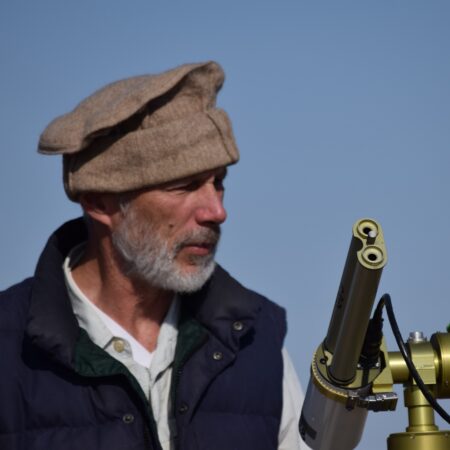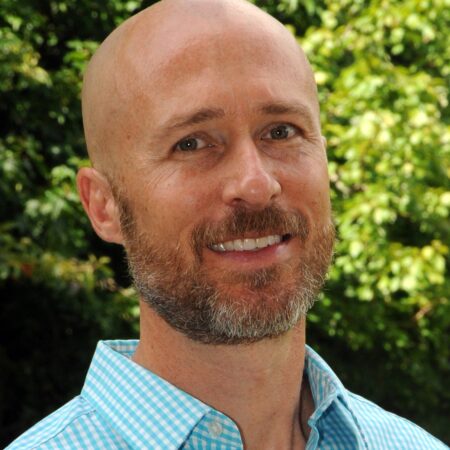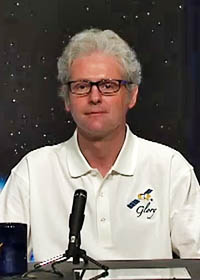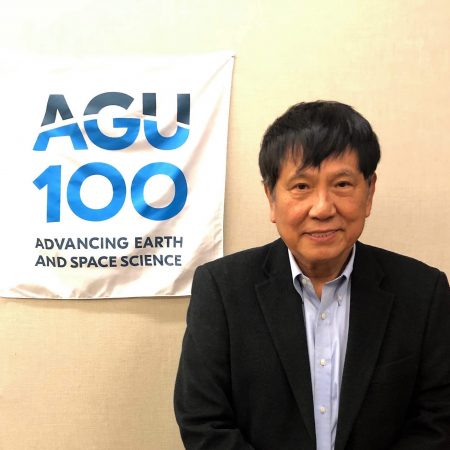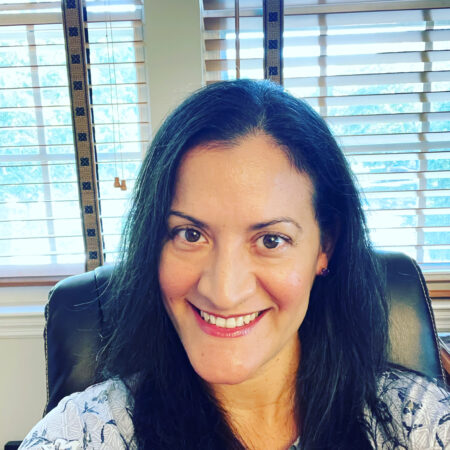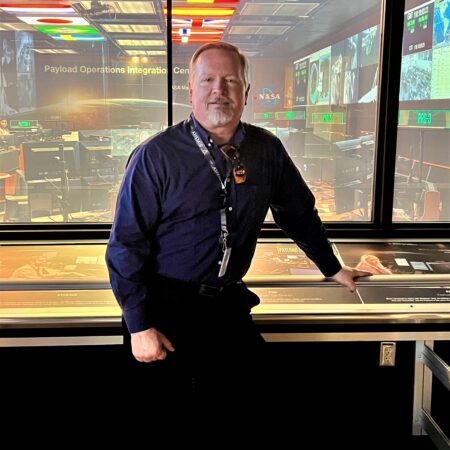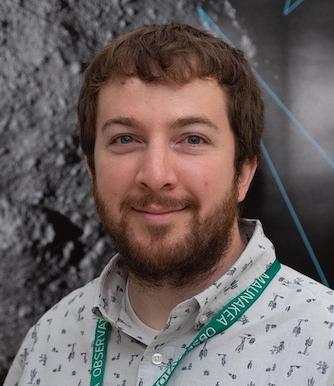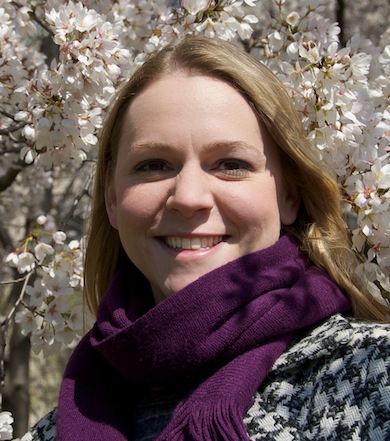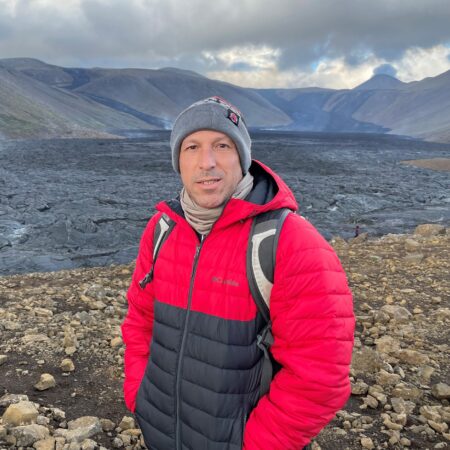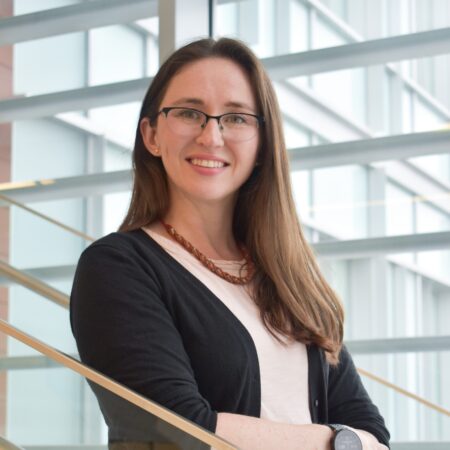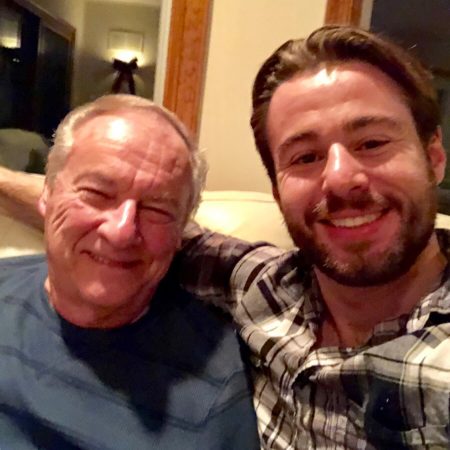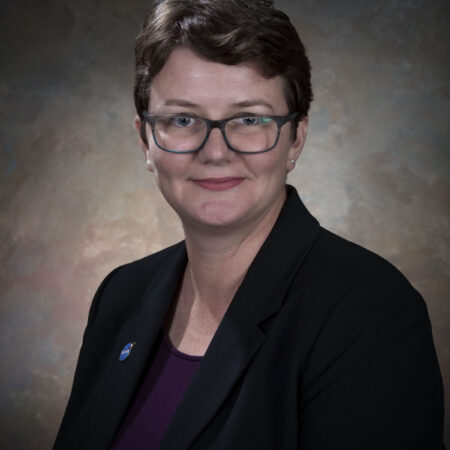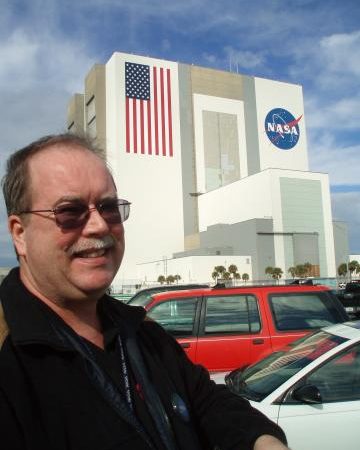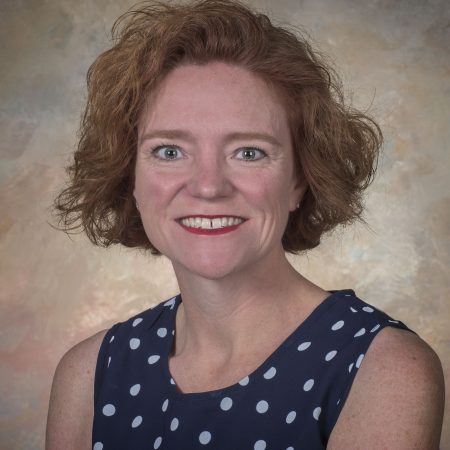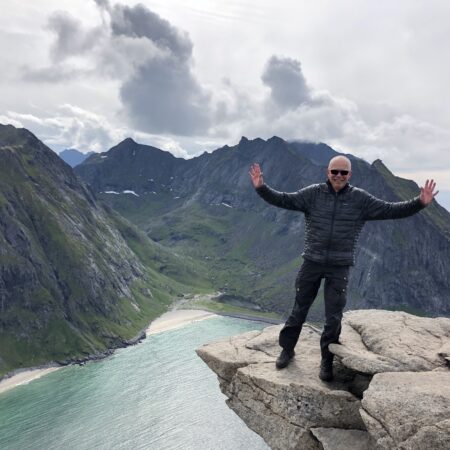Refine
Date Range Clear
Recorded by Clear
Keywords Clear
Partnerships Clear
Organizations Clear
Places Clear
Languages Clear
Initiatives Clear
As a child, Luke Oman was always looking out the window. Today, he works on atmospheric processing for NASA. How do volcanic eruptions affect everyday life? What happens when sulfur dioxide gases from volcanoes interact with sulfate aerosol and stay...
Glenn Orton is so deep in Jupiter mission information that he gets envious when he’s not involved in a space project studying the gas giant. The senior research scientist at the NASA Jet Propulsion Laboratory studies the composition and structure...
While Patrick Taylor spends a huge chunk of his time in the clouds, his work has nothing to do with daydreaming. The Research scientist at NASA’s Langley Research Center is working on understanding more about the role of clouds in...
With over thirty-years of experience in aerosol research as a Project Leader on NASA’s AERONET program, retired NASA scientist Brent Holben knows his way around those finer details. Now three-months into his retirement, Brent walks us through his adventurous world-trotting...
Being a Hydrologist was never on Matthew Rodell’s radar, let alone working for NASA. But he always trusted the path ahead. Now as their Deputy Director of Earth Sciences for Hydrosphere, Biosphere, and Geophysics (HGB) at Goddard Space Flight Center,...
Brian Cairns works for the NASA Goddard Institute for space studies in New York, where he focuses on developing instruments that will make better measurements of small particles in space. In this interview Dr. Cairns discusses his start in engineering,...
After one spends 50 years with the same organization, what’s next? That’s the question Dave Mao is attempting to answer after a highly-decorated career at the Carnegie Institution for Science. Born in Shangai and raised in Taiwan, Mao came to...
Delia Santiago-Materese is a program scientist at the NASA’s Planetary Space Division in Washington, D.C., where she helps facilitate science and works with the community to make decisions about where NASA’s scientists should be exploring next. She spends her days...
Walt Petersen is chief of the Science Research and Projects Division at NASA Marshall Space Flight Center. Basically, he leads a group of folks who research and develop technology to explore and study the universe and also to observe and...
Nathan Roth is a Research Associate in the Department of Physics at the Catholic University of America and spends most this time in the Astrochemistry Laboratory at the NASA Goddard Space Flight Center. Nathan studies the formation of the solar...
A 13 year old’s memory of the moon landing in Columbus, Ohio.
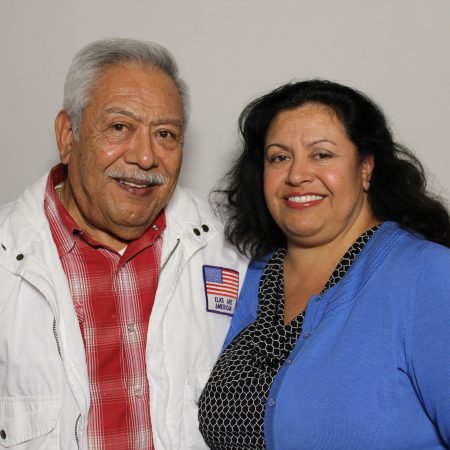
Nicholeen Viall is a research astrophysicist at NASA's Goddard Space Flight Center, with her research focus being the sun and solar wind. Listen to Dr. Viall talk about her start in space science, her greatest accomplishment, and her hopes for...
Sprites are electrical discharges like lightning, but up in the middle atmosphere. Having only been in the scientific literature since the 1990s, sprites captured Geoff McHarg’s imagination while observing the Aurora in Alaska. Perfect for a guy whose view of...
Louise Prockter knows a thing or two about logistics and planning. When the first image of the unseen hemisphere of Mercury popped onto the screen during a flyby mission, her first thought was, "oh thank God, it's in the middle...

Brothers Blaze Belobrajdic (38) and Lance Belobrajdic (35) discuss enlisting in the military, transitioning to civilian life, and working at NASA.
Peter Falcon is an Earth Science communications specialist at NASA’s Jet Propulsion Laboratory with an atypical background: behavioral science. As a communications specialist, Peter acts as a liaison between NASA projects – such as the CloudSat program – and students,...
Ashley Greeley is a research scientist in the Heliophysics Division at NASA’s Goddard Space Flight Center where she studies particles trapped in the magnetic field surrounding Earth. She sits down with us to talk about overcoming imposter syndrome, building innovative...
In the second part of the interview we discuss his career as an engineer working on the CORONA spy satellites, black projects, and Voyager 1-2 for NASA.
Renee Weber is the Chief Scientist at NASA’s Marshall Space Flight Center, which basically means she represents all science at the center- pretty cool if you ask us! We talked to Renee about the importance of seismology, building personal relationships...
Meet Eric Lindstrom, a former Physicial Oceanographer for NASA who now works with Saildrone, Inc to map the ocean floor. Eric spent his first day at the beach when he was 3 days old and has been fascinated with marine...
Dr. Amy Winebarger is an astrophysicist in the Heliophysics and Planetary Science Office at NASA. Listen to Amy talk about what makes sounding rockets awesome to work with, the rewards of being a mentor, and how a New York Times...
Miguel Román, a Physical researcher Scientist at NASA's Goddard Space Flight Center, shares his journey from his childhood in San Juan, Puerto Rico to NASA. Seeing the impacts of hurricanes and urban growth where he grew up, and the practical...
Michael Hesse is the Director of Science at NASA’s Ames Research Center, focusing on space biological science. We talked to him about being a good leader, doing science all over the world, and the joys of racing cars.


!["Something I learn today is something that [could help] society tomorrow." an interview with Patrick Taylor](https://archive.storycorps.org/uploads/2019/02/181211_PatrickTaylor-450x450.jpg)
